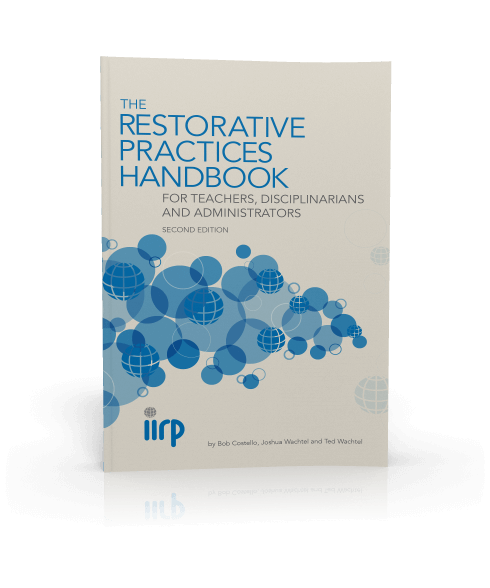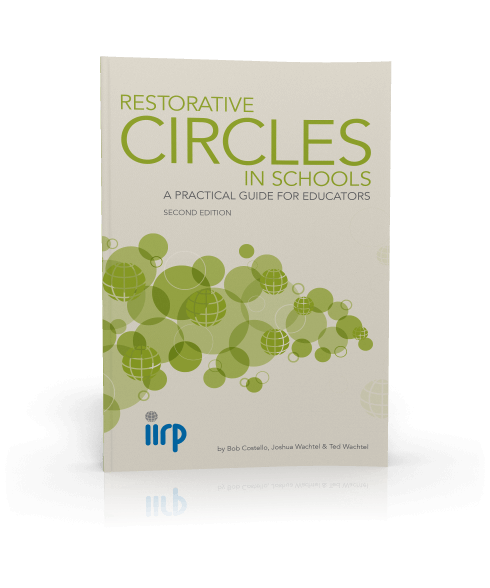We want safe and effective procedures and practices implemented throughout the K-12 system for dealing with incidents of racial and other discrimination and bullying.
The vcsAdministration has begun training school personnel in restorative practices. They have selected materials developed by a well respected organization - the iirp (International Institute for Restorative Practices). The key to bringing about a more affirming culture in the schools will be in robust implementation and early intervention throughout the K-12 classrooms - focusing on education and reconciliation when incident arise, where consequences arise out of facilitated conversations.
IIRP resources include:
The Restorative Practices Handbook - Second Edition
By Bob Costello, Joshua Wachtel & Ted Wachtel
The Restorative Practices Handbook is a practical guide for educators interested in implementing restorative practices, an approach that proactively builds positive school communities while dramatically reducing discipline referrals, suspensions and expulsions. The handbook discusses the spectrum of restorative techniques, offers implementation guidelines, explains how and why the processes work, and relates real-world stories of restorative practices in action.
Note about the second edition.
Since the first edition of this book was written in 2009, hundreds more schools across the U.S. and the world have implemented restorative practices. Research studies have been conducted to examine how restorative practices may best be implemented. The changes to this new edition have been minor, however. We replaced some older stories with relevant new anecdotes. Several theoretical points have been clarified. More emphasis has been placed on the proactive use of restorative practices, especially circles. We’ve also added examples of how administrators may use restorative practices with teachers and other staff. Thanks to IIRP Lecturer Mary Jo Hebling for her careful reading and her thoughtful suggestions and anecdotes that we’ve incorporated in this edition.
Contents:
- Introduction: New Thinking, New Practice, New Result
- Chapter 1: Restorative Practices in the Classroom
- Chapter 2: Restorative Practices and Discipline
- Chapter 3: Leadership and School Change
Restorative Circles in Schools: A Practical Guide for Educators - Second Edition
By Bob Costello, Joshua Wachtel & Ted Wachtel
Restorative Circles in Schools: Building Community and Enhancing Learning is a practical guide to the use of circles in schools and other settings, as well as an in-depth exploration of circle processes. The book includes numerous stories about the way circles have been used in many diverse situations, discussion on the use of proactive, responsive and staff circles, and an overview of restorative practices, with particular emphasis on its relationship to circle processes.
Note about the second edition.
This edition includes several new anecdotes and minor changes to style. Thanks to IIRP Lecturer Mary Jo Hebling for her support and invaluable input.
Excerpts from the book:
"I have used the circle to give direct instruction, summarize lessons, solicit student feedback and discuss various topics. By its nature, the circle allows each student to be part of the group and have direct input. No one hides in the circle."
"The circle represents a fundamental change in the relationship between students and authority figures. It creates a cooperative atmosphere in which students take responsibility for their actions. Students respond because they feel respected and realize that what they say matters."
"Circles provide a practical forum for the resolution of underlying feelings that intrude into the classroom and disrupt learning. The circle allows young people to express their feelings, and in doing so, reduce their intensity. The circle creates opportunities for students to recognize that others have similar issues and that they are not alone. By expressing feelings and getting acknowledgment from others, most students are then able to put their problems aside and move on with the school day."


